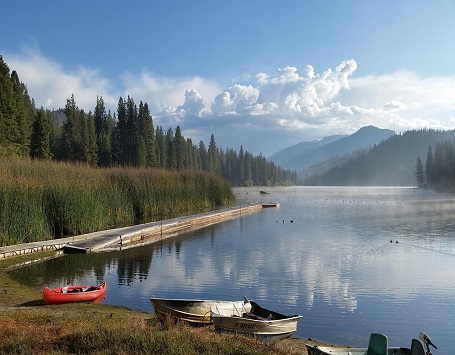The Art of Finding Your Perfect Mountain Retreat: Tips for Buyers and Investors
 Key Takeaways:
Key Takeaways:
Discover essential tips for buying mountain real estate.
Comprehend the monetary considerations involved in purchasing a mountain residence.
Learn what to look for in terms of location and amenities.
Explore popular mountain destinations for real estate investments.
Table of Contents:
Introduction
Why Mountain Retreats Are Gaining Popularity
Financial Considerations for Buyers and Investors
Essential Tips for Choosing the Right Location
Important Features to Look for in a Mountain Home
Navigating the Legal and Regulatory Landscape
Introduction
Discovering the ideal mountain retreat is a journey that combines personal preferences with innovative investment strategies. Whether you’re seeking a peaceful escape or a lucrative property, the process requires careful consideration of location, amenities, and year-round accessibility. From charming cottages to deluxe lodges, there are several alternatives to fit a variety of interests and budgets.
Evaluating the surrounding community and available activities is crucial when exploring potential mountain properties. For instance, homes for sale in Telluride CO offer access to world-class skiing, hiking trails, and a vibrant cultural scene. Consider the property’s potential for rental income, especially in popular tourist destinations, and assess the long-term value of your investment. By balancing personal enjoyment with financial prudence, you can find a mountain retreat that serves as both a sanctuary and a sound investment.
Why Mountain Retreats Are Gaining Popularity
The allure of mountain retreats has significantly increased as more individuals seek spaces that blend untouched nature with serene living conditions. This trend has been particularly noticeable post-pandemic, when many re-evaluated their lifestyle priorities, leaning towards environments that promote well-being. Moreover, the shift to remote work has enabled people to choose residence locations based on personal preference rather than workplace proximity. Remote workers cherishing the value of peace, privacy, and nature’s beauty often find mountain areas optimal living spaces.
The draw of these locales is not only about aesthetics but also the community-centric lifestyle they offer. Many mountain towns boast a rich tapestry of adventure-packed activities and a tight-knit sense of hospitality. These changing desires in living standards signify broader trends reshaping why people settle in mountainous areas.
Financial Considerations for Buyers and Investors
Before making any real estate purchase, mountain property buyers should embark on thorough financial planning. This includes evaluating all costs, from the initial purchase price to associated real estate taxes, ongoing maintenance, and any possible renovation expenses. Grasping the financial landscape can be equally important as selecting the proper property to prevent financial burdens from interfering with ownership.
Evaluating financing options is a pivotal step. While traditional mortgages remain popular, alternative financing routes can provide flexibility tailored to unique financial situations. Buyers increase their chances of securing the best possible deals by exploring these varied avenues.
Investors need an added layer of analysis. Beyond primary expenses, calculating potential returns determines the investment’s worth. Mountain properties can yield substantial returns, particularly in areas frequented by tourists. Yet, comprehending tax dynamics and previous property appreciation trends is essential to maximize long-term profits.
Essential Tips for Choosing the Right Location
Location is more than just a dot on a map; it forms the cornerstone of any real estate investment. Several dimensions must converge on mountain homes to categorize a locale as ‘ideal.’ Core factors like climate conditions, ease of accessibility, and availability of basic amenities significantly influence the property’s long-term viability and livability.
A property’s value is directly tied to its practicality—proximity to services, robust infrastructure, and schools can enhance a mountain area’s appeal. Besides physical proximity, look into the community’s lifestyle features, such as cultural events, recreational activities, and resident engagement. These factors determine your day-to-day life and your property’s market value.
Essential Features to Look for in a Mountain Home
Selecting the perfect mountain home extends beyond location, as the physical and functional aspects of the property carry immense weight. Sustainable architecture is increasingly favored, with designs that efficiently utilize the mountainous terrain while integrating modern comforts.
Mountain residences should ideally have structures resilient enough to combat particular weather challenges, such as heavy snowfall or rainfall. As more people work remotely, tech-compatible designs with sturdy internet connections and energy-efficient systems drive desirability. Moreover, low-maintenance landscaping that naturally complements the environment can add additional market value.
Navigating the Legal and Regulatory Landscape
While mountain properties offer many benefits, they often come with specific legal considerations that must be understood thoroughly. From zoning regulations and property rights to local building codes, these legal frameworks shape the feasibility and legality of property feature additions.
Partnering with a knowledgeable realtor or real estate attorney can significantly ease this intricate process. Buyers can safeguard their interests and avoid potential regulatory pitfalls by ensuring compliance with local laws and securing the property purchase legally.